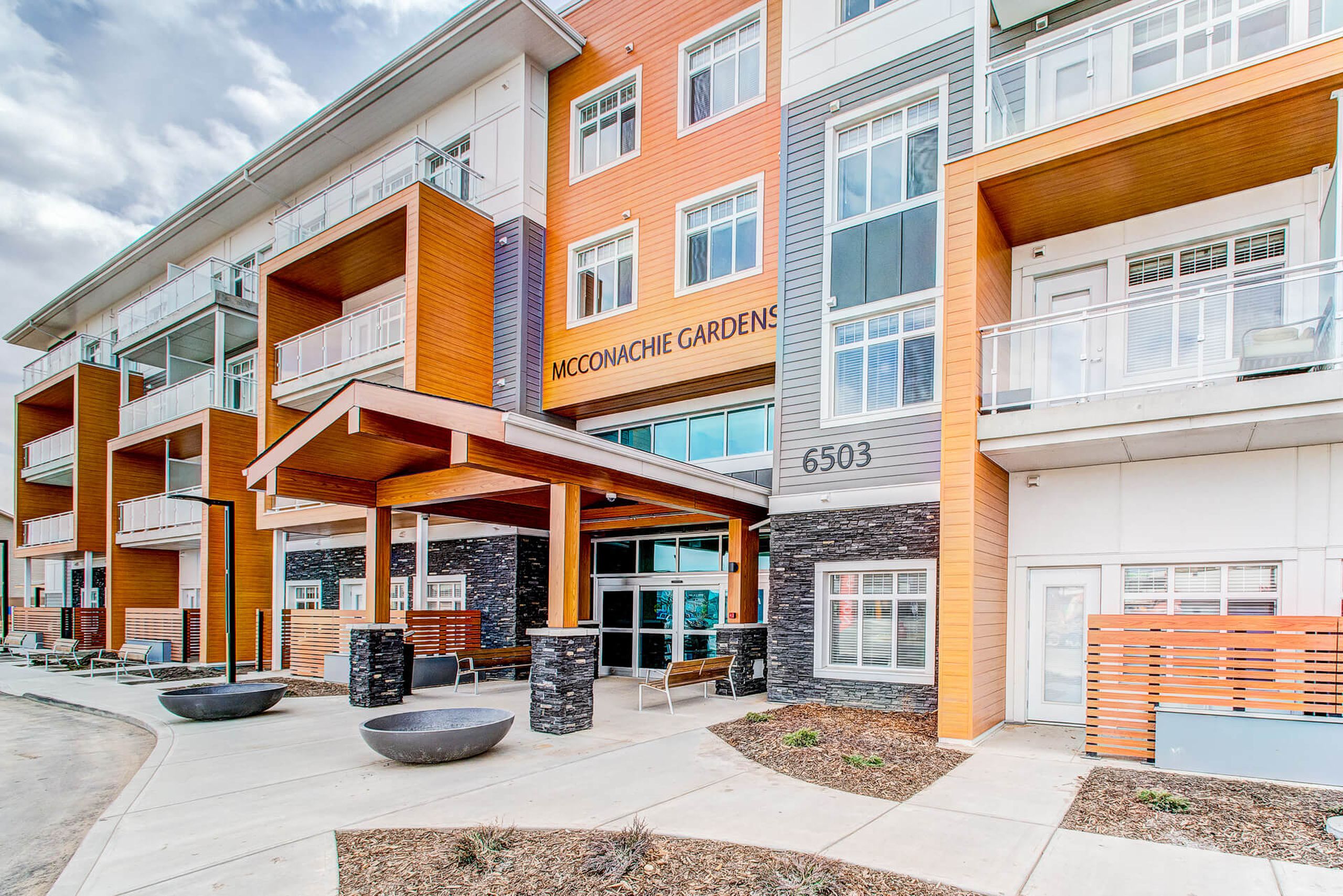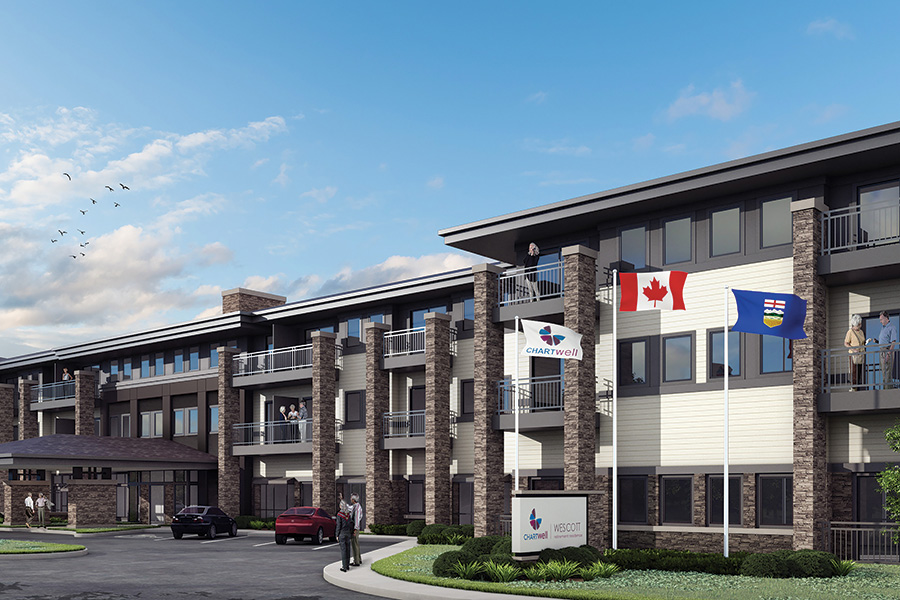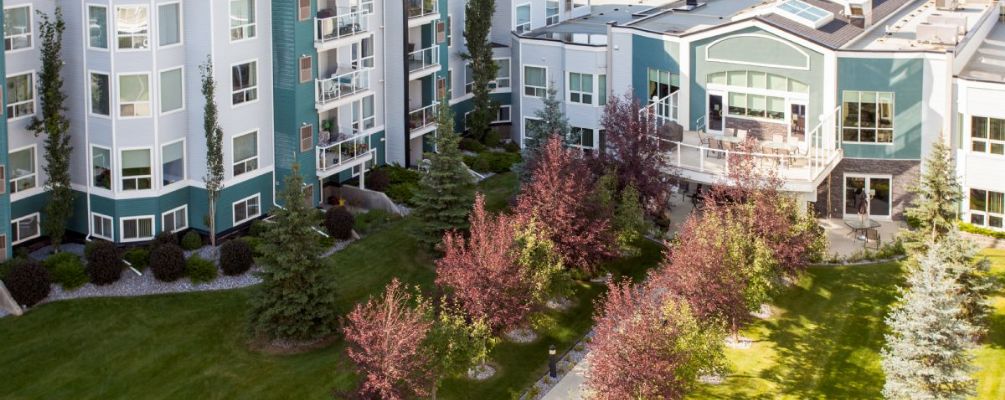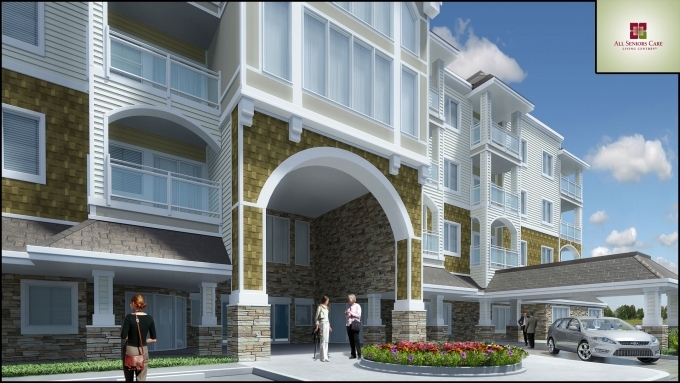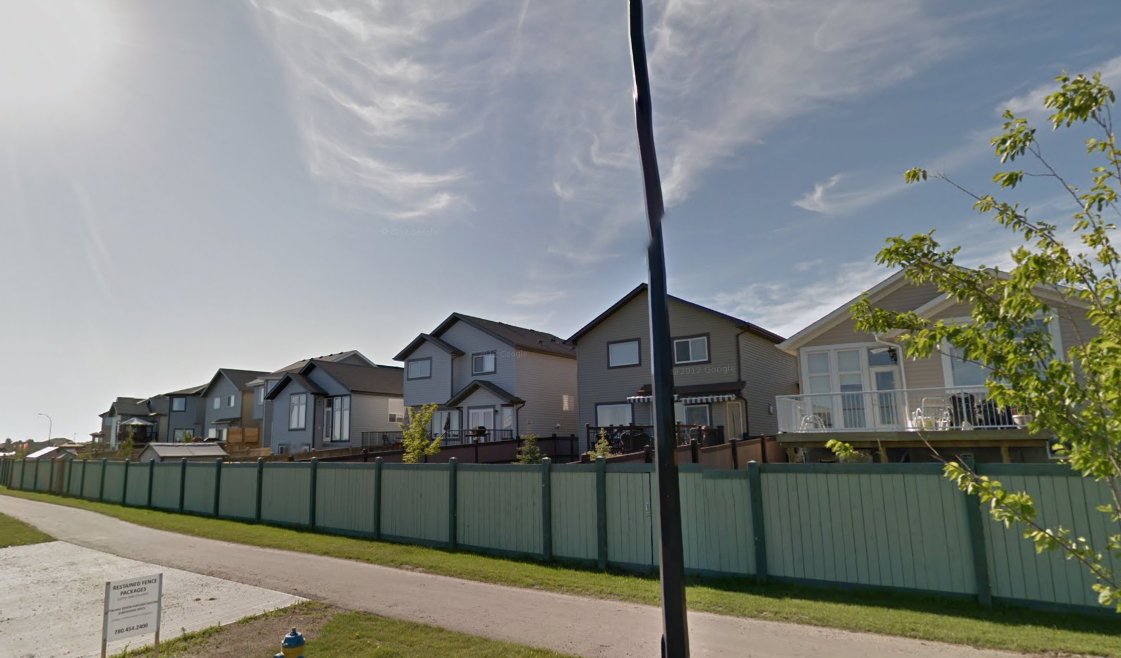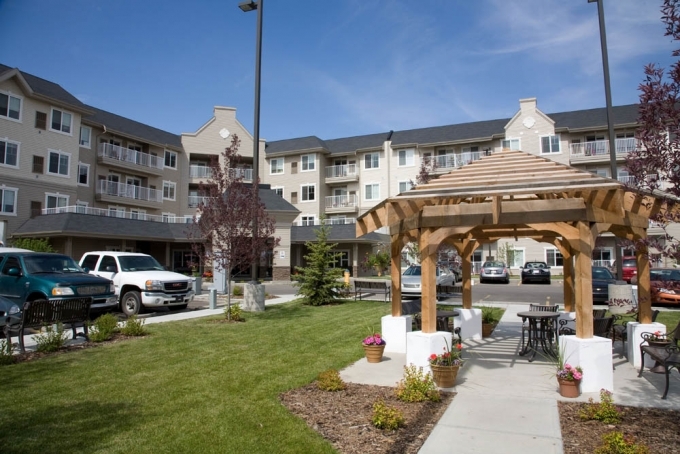Edmonton Retirement Homes & Communities
Edmonton offers 56 retirement homes and senior communities. As the capital of Alberta Province and the northernmost North American city, Edmonton has all the benefits of big city life while maintaining a distinct small town charm.
Home to approximately 1,278,000 residents, recent statistics show that about 40% of Alberta’s senior population resides in Edmonton. In addition, population projections predict that by 2031, approximately one in every five Albertans will be 65 years or older.
The average monthly rent for standard spaces in Edmonton is $2,538. In the table below, which is taken from the 2015 Senior’s Housing Report of the Canada Mortgage and Housing Corporation (CMHC), you will see the average rent for the different types of senior housing units in Edmonton and per centre in Alberta:
| Average Rent of Standard Spaces by Unit Type in Alberta | |||||
| Centre | Average | Semi Private | Bachelor | One Bedroom | Two Bedroom |
| Calgary CMA | $3,564 | ** | $2,860 | $3,754 | $4,522 |
| Edmonton CMA | $2,538 | ** | $1,974 | $2,515 | $3,922 |
| Rest of Alberta | $2,564 | ** | $1,990 | $2,562 | $3,334 |
| Alberta | $2,922 | ** | $2,405 | $2,960 | $3,542 |
In Alberta, the overall average rental rate for standard spaces is $2,922 in 2015. Senior housing units with two bedrooms or more had an average rent of $3,542. The average rent for bachelor units is $2,405, while average rent for one-bedroom spaces is $2,960. More than a third of the standard spaces in Edmonton has a monthly average rent between $2,500 and $2,999. The average rent for a heavy care space in Edmonton is $3,709.
Independent Living in Edmonton
Independent living communities in Alberta, also referred to as retirement homes and retirement residences, are ideal facilities for senior individuals who are considerably independent, only needing minor help with their daily living activities such as meals, housekeeping, laundry, social, and recreational programs. Accommodation costs for senior residences can range from $1500 to $5000 per month depending on the location, amenities offered, staffing level, and service package options.
Ottawa is home to a diverse population and the city is segmented into distinct neighborhoods, each offering its own lifestyle and services. This variety offers senior residents the opportunity to select retirement homes in a range of locations.
Retirement residences are designed for adults 55 years old and up, who are able to live independently and prefer a chore-free lifestyle in a community of peers. Senior homes in Alberta generally offer amenities such as gardens, libraries, fitness centers, and beauty salons.
Independent living communities in Alberta come in a variety of styles, such as apartment buildings, condos, and cottage-style homes situated in urban and small-town settings. These retirement communities are typically located close to hospitals and medical centers, shopping and retail centers, churches, recreational parks, and public transit. In Alberta, most retirement residences do not offer support services but residents may receive personal assistance services through Alberta Home Care, which are arranged separately from accommodations.
Alberta is the only province in Canada that supports all senior living options, providing capital subsidy for affordable housing in all senior housing sectors. Rental subsidies may be available to qualified senior citizens in Alberta independent living communities which are funded by the province.
The Senior Citizen’s Self –Contained Housing Program provides affordable apartment-style accommodations to low and moderate income senior individuals who are able and prefer to live independently but are incapable of paying for their private senior housing. Retirement residences which are operated under this program generally do not offer 24/7 on-site staff, but the tenants have access to staff who can assist in case of emergency. The monthly rental costs, including heat, water, and sewer, is geared-to-income and is based on 30% of the household adjusted income. The tenant is responsible for other costs such as electricity, cable TV, telephone, and monthly parking fees. Visit the Alberta Municipal Affairs website for more information.
The Alberta Seniors Lodge Program is open for application to seniors over 65 years of age. Alberta Seniors Lodges are operated by non-profit government subsidized associations. Meals, housekeeping, linen service, and 24-hour emergency response are provided to qualified seniors. While the residents may request help from an outside Home Care service, they must be self-supporting.
Assisted Living Facilities in Edmonton
Assisted living facilities located in the province of Alberta is also referred to as supportive living or supportive housing, and is part of the Continuing Care System. Assisted living is specifically designed to meet the needs of Alberta seniors who are able to live semi-independently with assistance close at hand in case they need it, providing housing, support services, and personal care.
In addition to 24-hour emergency response system and hospitality services like meals, housekeeping, laundry, transportation, and social activities, assisted living residences in Alberta also offer professional health and personal care services as well as assistance with the activities of daily living (ADLs) such as bathing, dressing up, and personal grooming. Seniors can choose which services they want to avail of from the options provided by the operator of the senior residence. Additional services may be obtained either from the operator or an outside provider. Professional and personal care services may also be availed from the Alberta Health Services.
Alberta Designated Assisted Living (DAL), also known as Designated Supportive Living Level 3 (SL3), are similar to other assisted living facilities in Alberta. They are referred to as “designated” because these facilities are operated in partnership with the Alberta Health Services (AHS). As such, the operators of DAL residences provide publicly funded health and support services, so every decision made regarding admission and discharge must be consulted with regional health authorities. These supportive living residences provide 24/7 access to Health Care Aid and continued skilled care through local home care program. To avail of this type of designated supportive living home in Alberta, senior citizens need to be assessed by a Home Care registered nurse, who creates an assessment plan for eligible seniors, specifying which health and personal care services will be provided and covered by AHS.
Alberta Enhanced Assisted Living, also known as Enhanced Lodges or Alberta Designated Supportive Living Level 4 (SL4), offers 24-hour professional and personal care (scheduled and unscheduled) as well as support services provided by Licensed Practical Nurses (LPNs) and Health Care Aides. Alberta Health Services (AHS) oversees case management services and professional health services, including 24-hour on-call RN services.
Assisted living residences in Alberta may be owned by either for-profit or non-profit organizations. Private or for-profit senior supportive living facilities are owned and operated by an individual or a corporation. The accommodation rates in private Alberta assisted living communities are set by their operators at market rate. Additional fees are charged for health care services and nursing care. The private senior residence operator also determines the fees for services. Generally, a basic package is offered and it comes with a list of additional services and their corresponding costs which tenants may request.
The provincial Supportive Living Accommodation Standards specify that rental and service agreements should include basic accommodation costs as well as service costs. It further states that it is the responsibility of the tenant to understand all fees, including fees for additional and optional services, before they sign their residency agreement. Seniors are encouraged to meet with the operator along with a family member or a trusted advisor to be sure that all fees are clearly explained to and understood by them.
Non-profit Alberta assisted living residences are typically owned and operated by voluntary religious or non-religious organizations, government bodies such as Alberta Health Services (AHS), or the Government of Alberta.
Under the Alberta Continuing Care Strategy, the development of new and affordable supportive living facilities for seniors are provided with additional funding by the provincial government. Grants for the Seniors Lodge Program and the Seniors Self-Contained Housing Program allowed senior housing operators to maintain affordable rates for senior citizens with modest incomes. Through this funding, more than 20,000 Alberta seniors received assistance.
Albertan seniors with low and modest incomes may obtain assistance through several programs provided by the Alberta government and Alberta Health Services. Healthcare, personal assistance, and care services are available to assisted living residents through the Alberta Health Services Home Care program.
Access to assisted living accommodations and health services are administered by Alberta Health Services (AHS), where the residence’s operator has a contract with AHS. The need for assistance through AHS Home Care program is assessed by case managers. Once approved by a case manager, Alberta seniors will not have to pay for publicly funded health care or personal care services provided in a designated supportive living community or by AHS Home Care program. However, seniors will be responsible for arranging and paying for any additional services that they might need. Alberta seniors residing in assisted living facilities may also opt to purchase care services from a private provider.
Provincial legislation governs the operation of Seniors Lodges. Under this legislation that protect low to modest income seniors, operators of Seniors Lodges may charge a monthly rate that will leave the tenant with a monthly minimum of $265 for their personal expenses. Operators of assisted living facilities that receive capital grant funding from the province of Alberta have a limit on the maximum amount of rental fee they may charge their residents, and may not exceed the maximum fee for a private room in a long term care facility.
Long Term Care in Edmonton
For elderly individuals who have highly complex health needs and whose care can no longer be safely provided in their own home or in supportive living, long term care facilities is the ideal community. This type of senior home may also be referred to as facility living, nursing home, or auxiliary hospital. Residents are provided with assistance with most activities of their daily living, including personal care such as bathing, dressing, grooming, as well as eating, nursing supervision, skilled medical care, and nursing care.
Long term homes may be run by for-profit and non-profit organizations, or by Alberta Health Services. The provincial government provides funding for the care portion. They offer social programming as well as on-site physiotherapy on an individualized basis or in a group setting, depending on the residents’ individual needs. They also provide occupational therapy and speech-language therapy.
Nursing homes typically conduct falls prevention and management program to help reduce the incidence of falls and the risk of injury. They also offer skin and wound care programs to promote skin integrity, prevent the development of wounds and pressure ulcers, and provide effective skin and wound care interventions. Continence care and bowel management programs are also given to promote continence and to ensure that the residents are clean, dry, and comfortable. Pain management programs help to identify pain in residents and manage it.
Long term care is not covered under the Canada Health Act, this level of care is being funded by the government. Health care services are publicly funded and are based on AHS care plans. They include care, medications, medical and surgical supplies, and medical transportation. Resident are responsible for their accommodation and additional services such as hairdressing, foot care, and the like.
Eligibility for placement in an auxiliary hospital is governed by provincial legislation, specifically the Nursing Home General Regulation, which requires nursing homes to comply with the Long Term Care Accommodation Standards and the Continuing Care Health Service Standards. You may inquire with AHS to see if Alberta offers relief for individuals with limited incomes. There are private pay options across the province as well.
Edmonton Recreational Activities for Seniors
The Edmonton Seniors Centre (ESC) is a hub of activity for elderly citizens committed to staying active. The Centre offers everything from fitness classes to computer education, foreign language courses to dance instruction and a variety of social events. In addition, the ESC reaches out to less able citizens via an outreach community, in an effort to include individuals who face challenges with mobility. According to the 2015 Seniors’ Housing Report, 66% of senior housing facilities in Edmonton provide internet access to their residents, and 57% offer transportation services. Moreover, community centers throughout the metropolitan area cater to the senior population with a variety of programs and events throughout the year.
The city of Edmonton is also home to numerous seniors and older adults’ societies that offer aging adults the opportunity to socialize and nourish friendships. A complete directory of Seniors’ Centers in Alberta is also available online and is managed by the local Alberta municipality.
Edmonton Medical Facilities
Seniors and their families can rest assured knowing that quality medical services are available around the clock in Edmonton, Alberta. Popular medical centers specializing in geriatric healthcare include the Hys Medical Centre, the Villa Caritas, as well as the University Hospital Seniors Health Clinic among many others.
Senior Living in Edmonton
Edmonton is known for its year-round calendar of festivals and events, earning it the nickname of “The Festival City” and world-wide renown for its bustling culture and constant activity. In addition, Edmonton also contains the largest amount of parkland per capita of any Canadian city, a trait that makes the metropolitan area vibrant with color and populated by residents that enjoy the great outdoors at every age.
As a result of Edmonton’s expanding senior population, the senior care sector is rapidly expanding. To peruse the available job opportunities in Edmonton, visit our senior jobs guide to Edmonton for more information.
Find Assisted Living in Edmonton
Whether your loved one is currently a resident of Edmonton, or is looking to move into town, you are sure to find that the city offers many services and amenities that will provide your loved one with a life rich in activities and enjoyment. Choosing the right retirement facility or assisted living residence can be an overwhelming decision, but with this comprehensive senior housing guide, an ideal retirement community is only a click away.
Explore the senior housing options in this city!

